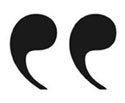Media
DMN: Pandora Pays Songwriters Just 4% of Revenues

Tuesday, February 10, 2015
 In a New Year’s message to listeners, Pandora’s CEO called 2014 the “year of the working artist on Pandora.” He suggests that events last year were positive for those trying to make a living on his streaming site.
In a New Year’s message to listeners, Pandora’s CEO called 2014 the “year of the working artist on Pandora.” He suggests that events last year were positive for those trying to make a living on his streaming site.
In reality, 2014 was the year of the music creator standing up to streaming on behalf of working songwriters. Not to mention, Pandora fighting tooth and nail in court and Congress to pay them even less.
Pandora’s CEO is quite literally banking on a few things. First, that music fans don’t understand recording artists and songwriters are paid differently – so by saying “artists” are treated well, folks will assume everyone is being compensated. Nothing could be further from the truth. While artists and record labels receive a respectable 50% of Pandora’s revenue, songwriters receive only about 4%. Second, he is hoping that fans won’t notice that Pandora has gone to court twice to sue to pay songwriters less. Less, even, than the $2,700 in songwriter and publisher royalties earned from 43 million streams of Pharrell Williams’ “Happy.” A far cry from the “year of the working artist,” the true hallmark of 2014 was that famous singer-songwriters said ‘no’ to streaming that treats songwriters unfairly. Taylor Swift made news with her bold declaration against the degrading royalty rates paid by Spotify, saying, “I’m not willing to contribute my life’s work to an experiment that I don’t feel fairly compensates the writers, producers, artists, and creators of this music.” Jason Aldean followed suit, declaring, “I’m an artist whose career has been built by the songwriters, publishers, producers and engineers that line Music Row in Nashville. What they do has value, and I want everyone who is involved in making my music to be paid fairly. This is about trying to do what is right for the people who have given me a great life.” Luckily, Swift and Aldean, who are both songwriters and recording artists, have the ability to take a stand by pulling their songs from Spotify. Were they exclusively songwriters, they would have no choice due to decades-old government regulations.
Simply put, without big-name artists like Swift to speak for them, the songwriters behind the music often have a much a weaker voice.
READ MORE HERE.
